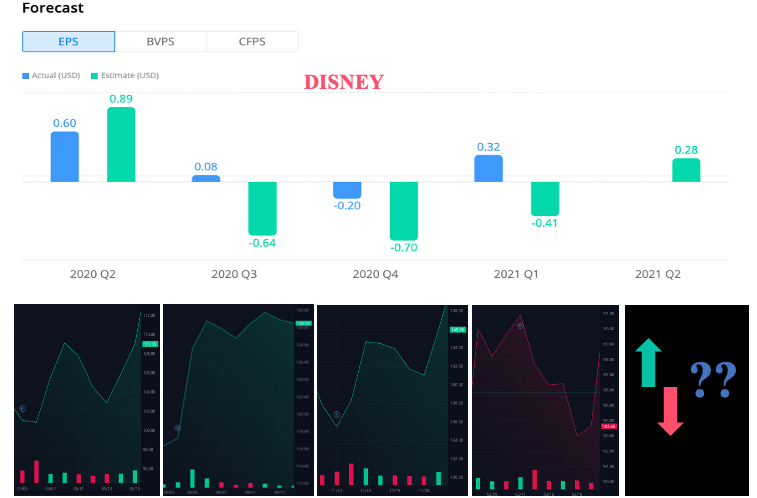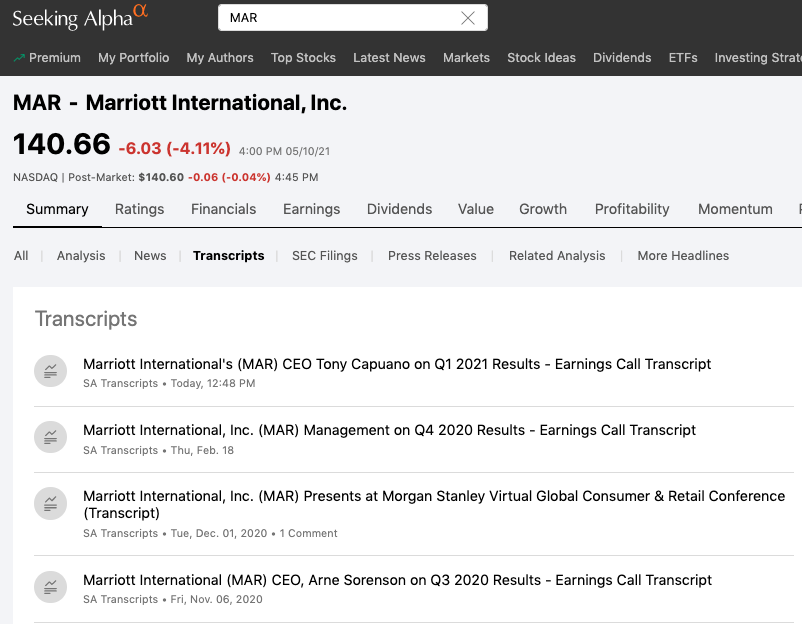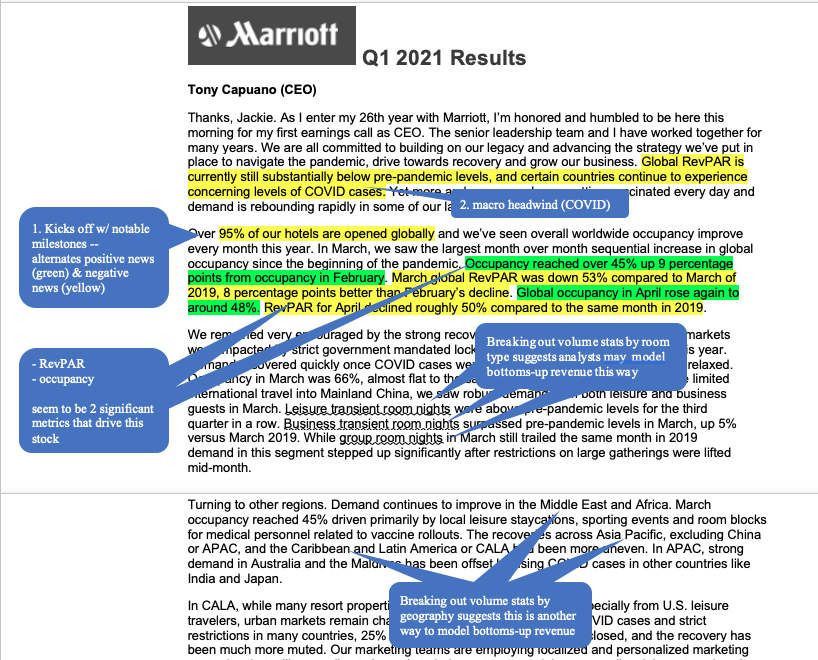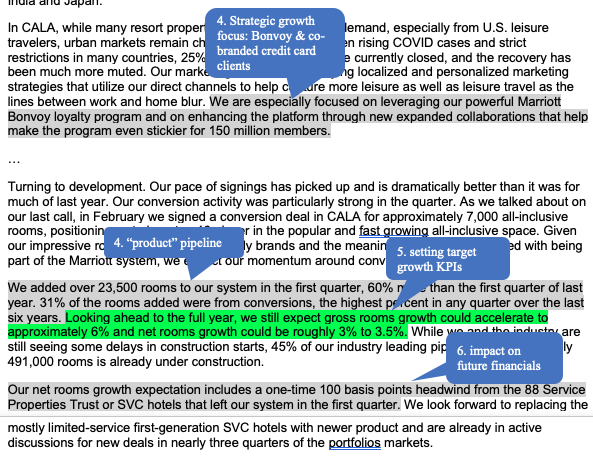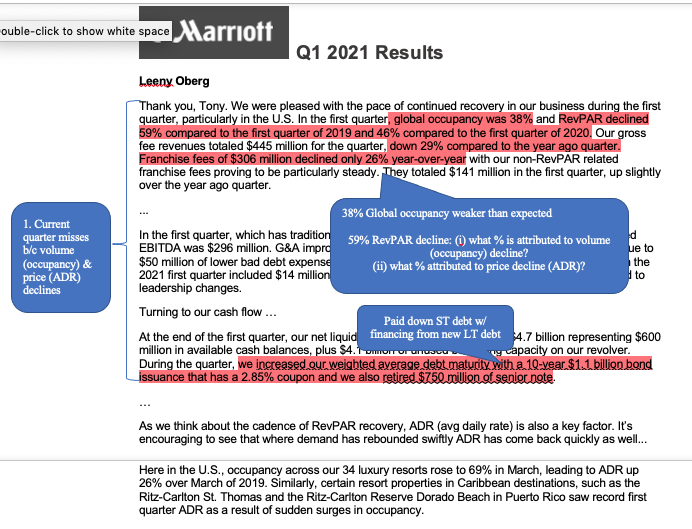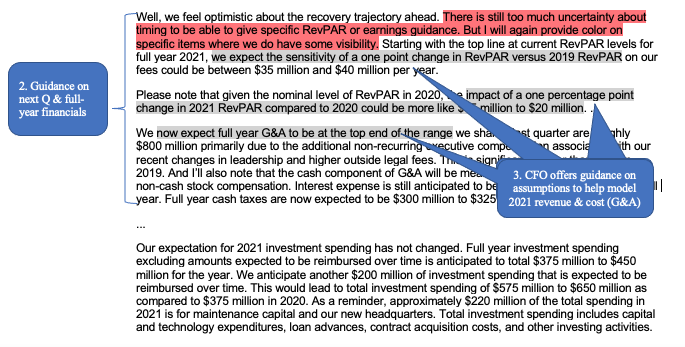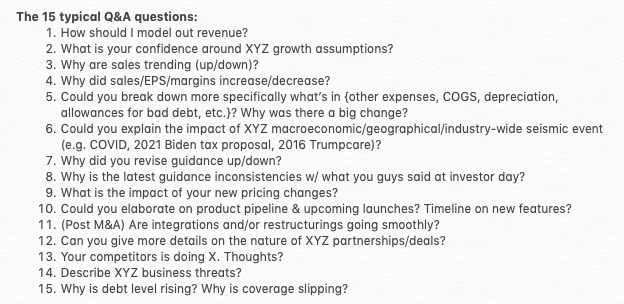You hear about the hottest earnings this week: $UPST, $ABNB, $PLTR, $DIS ... & excitedly tune in to your 1st call.
2min later. "What r they talkin& #39; abt? How does this help me trade??"
So many metrics, which are important?
Here& #39;s a guide
1/ Pre-call diligence
To know what& #39;s going on, u should collect the following info ahead of call:
a. Street estimates on revenue, EBIT, & EPS
b. Latest guidance #& #39;s from mgmt
c. Last 4 quarters& #39; revenue/EPS beats/misses & how the stock reacted
d. Last 4 quarters& #39; QoQ growth #& #39;s
To know what& #39;s going on, u should collect the following info ahead of call:
a. Street estimates on revenue, EBIT, & EPS
b. Latest guidance #& #39;s from mgmt
c. Last 4 quarters& #39; revenue/EPS beats/misses & how the stock reacted
d. Last 4 quarters& #39; QoQ growth #& #39;s
Example:
$DIS reports Q2 & #39;21 results on 5/13
I& #39;ve pulled actual v. estimated EPS from the last 4 quarters & corresponding stock performance.
Things to note:
- actual EPS consistently beats estimates (which means $DIS mgmt team is conservative about providing forward guidance)
$DIS reports Q2 & #39;21 results on 5/13
I& #39;ve pulled actual v. estimated EPS from the last 4 quarters & corresponding stock performance.
Things to note:
- actual EPS consistently beats estimates (which means $DIS mgmt team is conservative about providing forward guidance)
- most executives err on conservative b/c earnings misses can be devastating
- EPS doesn& #39;t look like a strong driver for $DIS stock performance (though Q1 & #39;21 results significantly beat expectations the stock still plummeted)
- is revenue better? How about Pixar-specific revenue?
- EPS doesn& #39;t look like a strong driver for $DIS stock performance (though Q1 & #39;21 results significantly beat expectations the stock still plummeted)
- is revenue better? How about Pixar-specific revenue?
2/ Structure of an earnings call
Who& #39;s present?
- CEO, CFO, IR, operator, sell-side analysts & rarely buy-side
Format: 3 parts (~45min)
- CEO& #39;s prepared remarks
- CFO& #39;s prepared remarks
- Analyst Q&A (~15-30min)
Where are historic transcripts?
- Company IR pages
- SeekingAlpha
Who& #39;s present?
- CEO, CFO, IR, operator, sell-side analysts & rarely buy-side
Format: 3 parts (~45min)
- CEO& #39;s prepared remarks
- CFO& #39;s prepared remarks
- Analyst Q&A (~15-30min)
Where are historic transcripts?
- Company IR pages
- SeekingAlpha
2a/ Prepared remarks - CEO
Typical flow:
1. notable milestones this quarter
2. macro tailwinds
3. major corporate actions (M&As, restructuring)
4. growth & expansion strategy (new partnerships, campaigns, product pipeline)
5. upcoming goals/KPIs
6. impact on future financials
Typical flow:
1. notable milestones this quarter
2. macro tailwinds
3. major corporate actions (M&As, restructuring)
4. growth & expansion strategy (new partnerships, campaigns, product pipeline)
5. upcoming goals/KPIs
6. impact on future financials
2b/ Prepared remarks - CFO
While CEO focuses on high-level strategy, CFO focuses on low-level financial metrics.
Typical flow:
1. Current quarter beats, misses, & why?
2. Guidance for next Q & fiscal year
3. Assumptions for modeling revenue & profit
(Marriot Q1 example cont& #39;d)
While CEO focuses on high-level strategy, CFO focuses on low-level financial metrics.
Typical flow:
1. Current quarter beats, misses, & why?
2. Guidance for next Q & fiscal year
3. Assumptions for modeling revenue & profit
(Marriot Q1 example cont& #39;d)
Key questions to ponder during CEO/CFO prepared remarks:
- What metrics does the CEO focus on (vs. CFO who spews out all metrics whether useful or not)
- What clues does the CFO give about how to model revenues & costs? (e.g. by product line? by geography? by customer size/type?)
- What metrics does the CEO focus on (vs. CFO who spews out all metrics whether useful or not)
- What clues does the CFO give about how to model revenues & costs? (e.g. by product line? by geography? by customer size/type?)
3/ Q&A
This is the most important part IMHO. Why? Because it& #39;s not prepared. That said, most questions that analysts ask are very predictable.
There& #39;s 15 main question "flavors."
#1-10 focus on improving financial modeling accuracy
#11-12 are long term
#13-15 are about threats
This is the most important part IMHO. Why? Because it& #39;s not prepared. That said, most questions that analysts ask are very predictable.
There& #39;s 15 main question "flavors."
#1-10 focus on improving financial modeling accuracy
#11-12 are long term
#13-15 are about threats
Pay special attention to:
- bearish questions
- questions that mgmt doesn& #39;t know the answer to
- questions that mgmt refuses to answer
- metrics/KPIs that sell-side analysts repeatedly ask for more clarification on (b/c this tells u exactly how they& #39;re modeling revenue)
- bearish questions
- questions that mgmt doesn& #39;t know the answer to
- questions that mgmt refuses to answer
- metrics/KPIs that sell-side analysts repeatedly ask for more clarification on (b/c this tells u exactly how they& #39;re modeling revenue)
Why DOESN& #39;T buy-side ask questions?
From 57,784 sample transcripts, buy-side repr. <5% of all questioners.
Why?
1. Don& #39;t want to reveal positions
2. Can ask IR later in private 1-1 meetings
3. IR may purposely put funds @ back of the queue to avoiding challenging questions
From 57,784 sample transcripts, buy-side repr. <5% of all questioners.
Why?
1. Don& #39;t want to reveal positions
2. Can ask IR later in private 1-1 meetings
3. IR may purposely put funds @ back of the queue to avoiding challenging questions
Why/When DOES buy-side ask questions?
1. Your name is @davidein & you want to move markets ( https://bit.ly/2R2vNoK )
2.">https://bit.ly/2R2vNoK&q... Your name is not Einhorn but you still want to move markets in your favor
3. Your name is Bruce Wayne ( https://bit.ly/3exfWY6 )">https://bit.ly/3exfWY6&q...
1. Your name is @davidein & you want to move markets ( https://bit.ly/2R2vNoK )
2.">https://bit.ly/2R2vNoK&q... Your name is not Einhorn but you still want to move markets in your favor
3. Your name is Bruce Wayne ( https://bit.ly/3exfWY6 )">https://bit.ly/3exfWY6&q...

 Read on Twitter
Read on Twitter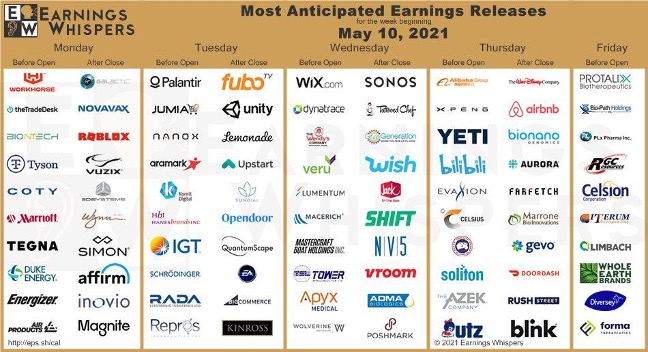 How to Make Sense of Earnings Callshttps://abs.twimg.com/emoji/v2/... draggable="false" alt="📝" title="Memo" aria-label="Emoji: Memo">You hear about the hottest earnings this week: $UPST, $ABNB, $PLTR, $DIS ... & excitedly tune in to your 1st call.2min later. "What r they talkin& #39; abt? How does this help me trade??"So many metrics, which are important?Here& #39;s a guidehttps://abs.twimg.com/emoji/v2/... draggable="false" alt="👇" title="Rückhand Zeigefinger nach unten" aria-label="Emoji: Rückhand Zeigefinger nach unten">" title="https://abs.twimg.com/emoji/v2/... draggable="false" alt="📝" title="Memo" aria-label="Emoji: Memo">How to Make Sense of Earnings Callshttps://abs.twimg.com/emoji/v2/... draggable="false" alt="📝" title="Memo" aria-label="Emoji: Memo">You hear about the hottest earnings this week: $UPST, $ABNB, $PLTR, $DIS ... & excitedly tune in to your 1st call.2min later. "What r they talkin& #39; abt? How does this help me trade??"So many metrics, which are important?Here& #39;s a guidehttps://abs.twimg.com/emoji/v2/... draggable="false" alt="👇" title="Rückhand Zeigefinger nach unten" aria-label="Emoji: Rückhand Zeigefinger nach unten">" class="img-responsive" style="max-width:100%;"/>
How to Make Sense of Earnings Callshttps://abs.twimg.com/emoji/v2/... draggable="false" alt="📝" title="Memo" aria-label="Emoji: Memo">You hear about the hottest earnings this week: $UPST, $ABNB, $PLTR, $DIS ... & excitedly tune in to your 1st call.2min later. "What r they talkin& #39; abt? How does this help me trade??"So many metrics, which are important?Here& #39;s a guidehttps://abs.twimg.com/emoji/v2/... draggable="false" alt="👇" title="Rückhand Zeigefinger nach unten" aria-label="Emoji: Rückhand Zeigefinger nach unten">" title="https://abs.twimg.com/emoji/v2/... draggable="false" alt="📝" title="Memo" aria-label="Emoji: Memo">How to Make Sense of Earnings Callshttps://abs.twimg.com/emoji/v2/... draggable="false" alt="📝" title="Memo" aria-label="Emoji: Memo">You hear about the hottest earnings this week: $UPST, $ABNB, $PLTR, $DIS ... & excitedly tune in to your 1st call.2min later. "What r they talkin& #39; abt? How does this help me trade??"So many metrics, which are important?Here& #39;s a guidehttps://abs.twimg.com/emoji/v2/... draggable="false" alt="👇" title="Rückhand Zeigefinger nach unten" aria-label="Emoji: Rückhand Zeigefinger nach unten">" class="img-responsive" style="max-width:100%;"/>
